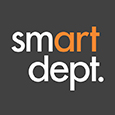The Future of Work: Quantified Employees, Pop-Up Workplaces, And More Telepresence
For many people, especially those working at desk jobs, the workplace is very different than it was 20 years ago: there’s a computer at every desk, telecommuting is fairly common, and the traditional cubicle is giving way to more collaborative spaces. We’ve seen predictions about where we’ll go from here before; now PSFK, a popular blog that also happens to be a thriving consultancy, has come up with its own version of the future of work, described in a new 138-page report. It’s not as fantastical as many future-forward reports–it’s planted firmly in ideas that are already gaining a lot of traction. Perhaps that makes it more accurate. We’ll find out.
Here are our takeaways.
Startup Training and Skills Marketplaces
PSFK imagines that learning initiatives for young entrepreneurs, such as Enstitute, will become the norm. In this model, college students are matched up with startups, where they learn all the programs used by the company, take relevant Skillshare classes, and work on projects, and sit in on panels. Virtual learning libraries, where entrepreneurial experts can leave advice in written and video form, will also proliferate (we’re seeing hints of this now with the growing online education industry). At the same time, skills marketplaces–social tools that allow employers to quickly get a handle on applicants’ skills will become popular. Mozilla’s Open Badges project, for example, lets people display their skills via badges on social media profiles.
Read the rest on fastcoexist.com!

